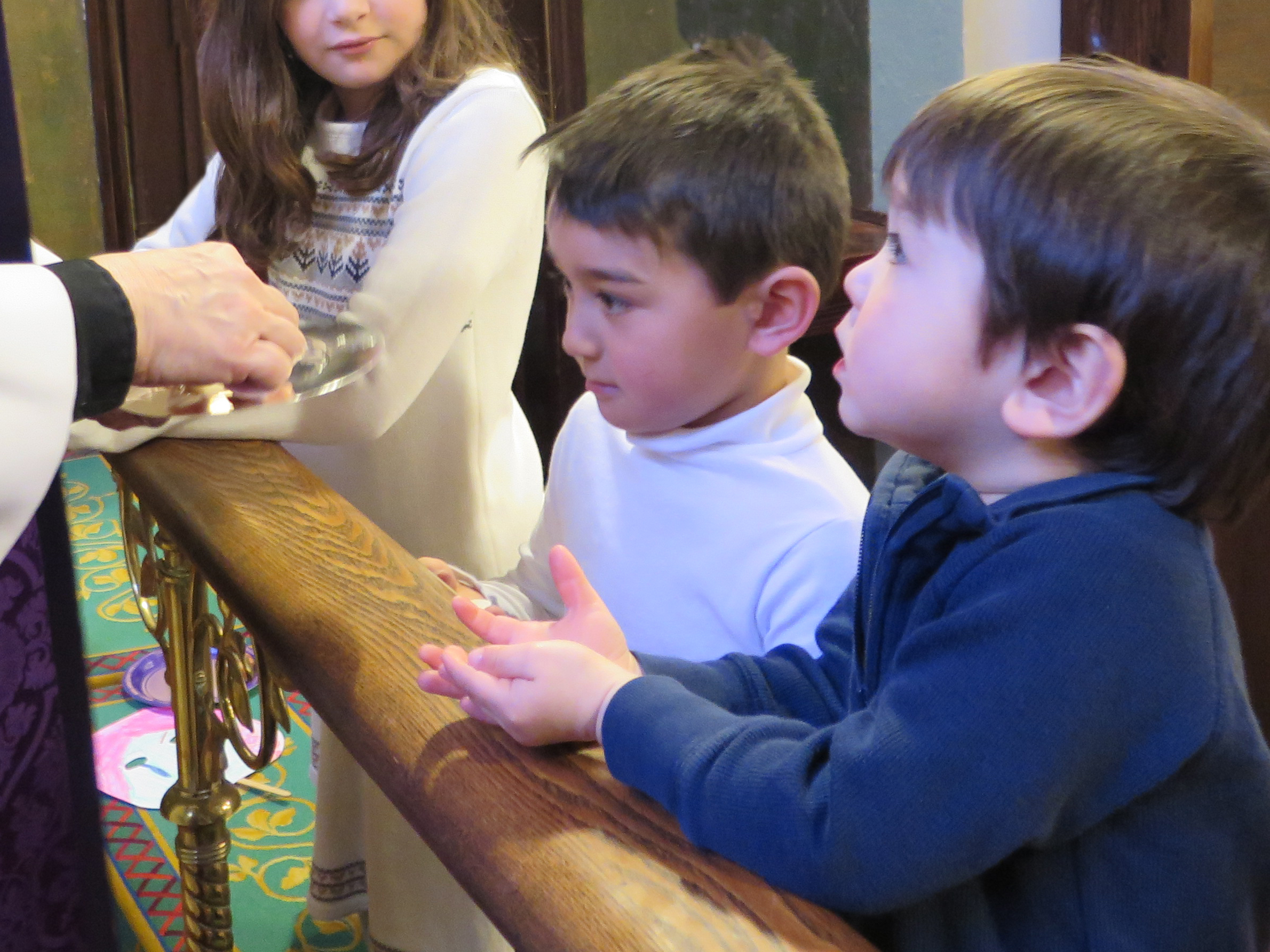When is my child old enough to receive Communion?
The Book of Common Prayer teaches that Holy Baptism is the only requirement for full membership in the Church. One of the chief expressions of “full membership” is partaking of Holy Communion. The short answer is “any baptized person is welcome to receive communion in the Episcopal Church.” That includes children and even infants. St. Paul's welcomes young children to receive Holy Communion. It may help to think of receiving Communion this way: As we gather at the communion rail to be fed with the spiritual food of Christ, we are, in a very real sense, gathering for a family meal. Would you serve a meal where everyone was fed except the children? In this way, a child who receives the sacrament is being treated as a member of the family of God--being nourished in much the same way that we feed our families at home.
Why is it important for my child to receive Communion?
If we want our children to really understand what “receiving” Communion means, then we must help them experience what “living” Communion means. Since children learn far more about values and beliefs by observing how we live—and then test us to see if our actions and our words are congruent—how we live, and help our children live, our faith is very important.
Will allowing my child receive Communion teach healthy Christian values?
Yes! When a person is baptized into Christ, that person, as the Apostle Paul writes, becomes a new creation. The old has passed away, and the new has come. He describes us as “putting on Christ” and becoming apart of a wider whole he likens to a body, wherein all parts work as a part of a whole. In this light, then, Communion is not just something we “get” but mostly something we “do”. In our Baptismal Covenant, we promise to “continue in the Apostles teaching and fellowship, in the breaking of bread and in the prayers.” (BCP page 304, Acts —) When we baptize our children, we promise to help them do this. Membership in the Church is more than showing up or even paying dues, it is participation in the continuing work of Jesus Christ. That means we take to heart and mind the teaching of the Apostles, we share in the fellowship and community of the Church (by our participation, and our generosity), we break bread (both Holy Communion and shared community) and we pray with each other and for each other.
How can I help my child “Connect the Dots” Between Communion and Daily Life?
- Help them understand the Eucharist at an age-appropriate level.
- Use resources available at St. Paul's, such as those found at the back of the church by the Children's Cabinet, and in the Sunday school to help children understand both Holy Communion and the heart of the Christian faith.
- When your child reaches the age of between 6 and 9, have them take part in a program called "First Intentional Communion". Call the Parish Office for information.
- Help them to pray at home. Use the Daily Devotions section of the Book of Common Prayer (BCP pp. 136-140).
- There are many other resources available. Speak to the Rector who will be more than happy to assist you.
- Older children and teens who use the computer may enjoy using the Daily Office and other apps for prayer and meditation.
- Talk with your children about your own spiritual journey. You do not have to know everything or even believe everything to be a wholesome Christian example to your kids. In fact, knowing that you do not have all the answers but are just like them, someone learning to pray and learning to follow Jesus, can be a mighty encouragement.
All baptized persons are welcome to receive communion in the Episcopal Church.
The sacrament of Christ’s Body and Blood propels us into the world as people being changed by and for God every day. The most important thing we can do for our children (and our selves!) is to connect the sacrament we receive in Church to the living we do at home, school, work and play.
